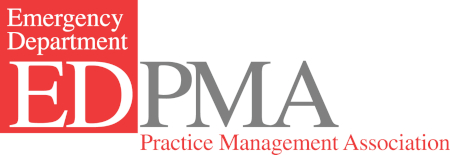
Quality, Coding & Documentation Committee (QCDC)
If you are joining/unjoining a community, please email info@edpma.org so we can forward Outlook... View more
FY 2025 IPPS Proposed Rule
-
FY 2025 IPPS Proposed Rule
On April 10th, CMS released its fiscal year (FY) 2025 Inpatient Prospective Payment System (IPPS) proposed rule. This rule proposes a 2.6% increase in inpatient hospital payments for facilities meeting their quality reporting and meaningful use requirements for FY 2025. Other issues addressed in the rule include inpatient quality reporting requirements, and the distribution of residency slots.
While there is not typically a large volume of issues in this rule that we have been active on,the items below highlight areas of the proposed rule that may believe will be of interest. Also, the rule included a proposed mandatory alternative payment model called the Transforming Episode Accountability Model (TEAM), which would provide episode-based payments to hospitals for five procedures: lower extremity joint replacement, surgical hip femur fracture treatment, spinal fusion, CABG, and major bowel procedures. Note that we are developing a separate summary of the TEAM proposals, which we will share with you as soon as possible.
As a reminder, CMS is accepting comments on this proposed rule through June 10, 2024. The final rule is expected in late July/early August. Let us know if you think we should comment. I will also posted in the Quality Measures Subcommittee if they want to take a deeper dive.
GME Residency Positions. CMS proposes policies to implement section 4122 of the Consolidated Appropriations Act, 2023 (CAA, 2023), which requires the distribution of an additional 200 Medicare-funded residency positions. Of note, CMS proposes that of the total residency slots distributed under section 4122 of the CAA, 2023, at least 100 but not more than 200 slots would be distributed to hospitals applying for residency programs in psychiatry and psychiatry subspecialties. For purposes of determining which programs are considered psychiatry subspecialties, CMS proposes to refer to the list included on ACGME website under the “Specialties” tab, currently: Addiction Medicine, Addiction Psychiatry, Brain Injury Medicine, Child and Adolescent Psychiatry, Consultation-Liaison Psychiatry, Forensic Psychiatry, Geriatric Psychiatry, Hospice and Palliative Medicine, and Sleep Medicine. CMS will also prioritize the distribution of certain slots based on the Health Professional Shortage Areas (HPSA) score. CMS includes multiple requests for information in this section.
Separate IPPS Payment for Establishing and Maintaining Access to Essential Medicines. Based on feedback from stakeholders following its request for comment (RFC) in the CY 2024 OPPS/ASC PPS rulemaking, for cost reporting periods beginning on or after October 1, 2024, CMS proposes to establish a separate payment under the IPPS to small, independent hospitals for the additional resource costs involved in voluntarily establishing and maintaining access to 6-month buffer stocks of essential medicines, either directly or through contractual arrangements with a manufacturer, distributor, or intermediary. CMS proposes that the costs of buffer stocks that are eligible for separate payment are the costs of buffer stocks for one or more of the medicines on the Advanced Regenerative Manufacturing Institute’s ARMI’s List of 86 essential medicines.
RFI on Obstetrical Services Standards for Hospitals, CAHs, and REHs
CMS plans to propose baseline health and safety standards (i.e., Conditions of Participation or CoPs) for obstetrical services in the 2025 Outpatient Prospective Payment System/Ambulatory Surgical Center (ASC) proposed rule and is seeking feedback on strategies. CMS specifically asks about:
· What types of care settings such a CoP should apply to (e.g., hospitals with/without emergency services; REHs; outpatient settings, which may include inpatient and outpatient prenatal, postpartum, emergency, and birthing care services).
· Existing acceptable standards of practice, organization, and staffing for obstetrical services in EDs and REHs, as well as regulatory barriers in these settings.
· Whether a hospital obstetrical services CoP should include a requirement for transfer protocols for when a non-ED patient needs care that exceed the capability of the hospital (that is, inpatient to inpatient transfers)
· CMS is also interested in feedback on requiring additional training, protocols, or equipment for hospital non-OB unit, ED, CAH, and REH staff that treat pregnant and postpartum patients as a stop-gap measure to ensure individuals living without access to maternal health care can safely and effectively receive necessary services.
CoP Requirements for Hospitals and CAHs to Report Acute Respiratory Illnesses.
CMS proposes to update the hospital and CAH infection prevention and control and antibiotic stewardship programs’ CoPs to replace the COVID-19 and Seasonal Influenza reporting standards with a new standard to address acute respiratory illnesses. Beginning on October 1, 2024, hospitals and CAHs would have to electronically report certain data elements about COVID-19, influenza, and respiratory syncytial virus (RSV) among hospitalized patients. Outside of a PHE, hospitals and CAHs would have to report these data on a weekly basis. CMS also solicits input on collecting these data by race/ethnicity.
· CMS also proposes that during a PHE for an infectious disease, it may require additional categories of reporting, such as: facility infrastructure operational status; hospital/ED diversion status; staffing/shortages; supply inventory shortages; and relevant countermeasures and therapeutics. During a PHE, as well as during an event that the Secretary determines is significantly likely to become a PHE, it may require hospitals to report data up to a daily frequency without notice and comment rulemaking. CMS seeks feedback on whether there should be limits on this authority and whether hospitals should be incentivized if reporting these data exceeds a certain threshold of cost/time.
RFI on Health Care Reporting to the National Syndromic Surveillance Program (NSSP). CMS seeks feedback on how it can further advance hospital participation in the NSSP, including potential incentives and burdens, to ensure that this critical data source is available at all levels of public health to support health care preparedness, public health readiness, and responsiveness to existing and emerging health threats. The primary dataset used for analysis is Emergency Department patient visit data.
Log in to reply.
